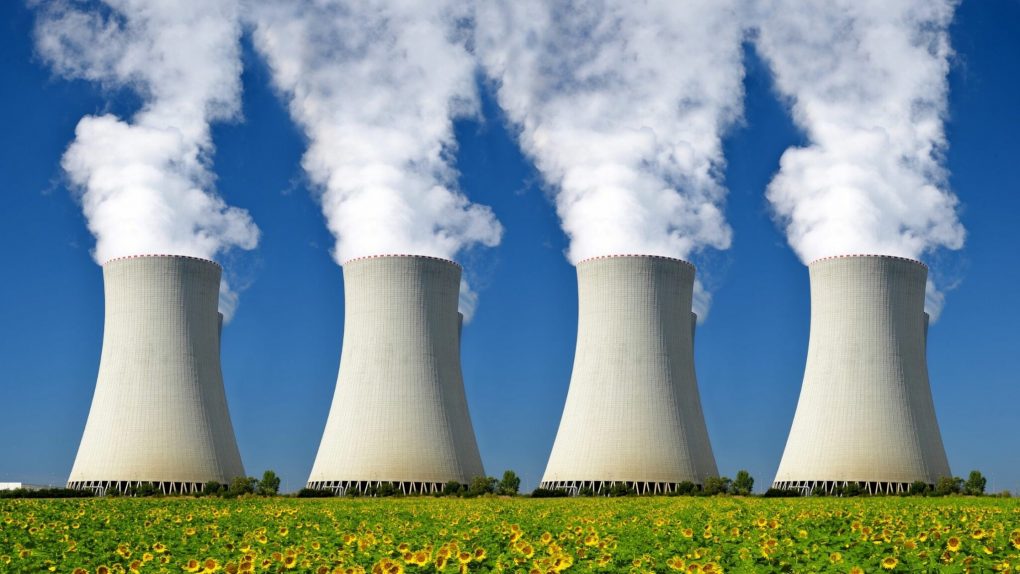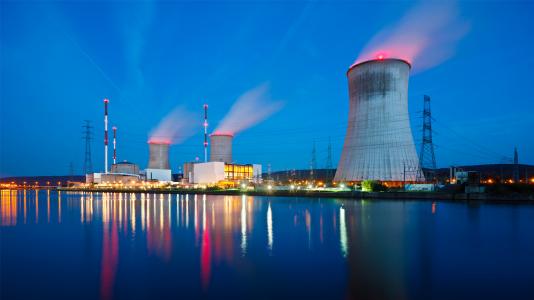Harnessing the Power of the Atom: A Nuclear Engineering Subject Review
Table of Contents
- What is Nuclear Engineering?
- Key Disciplines within Nuclear Engineering
- The Impact of Nuclear Engineering
- Careers in Nuclear Engineering
- Skills Needed for Success
- Famous Nuclear Engineers
- Top Universities for Nuclear Engineering
- The Future of Nuclear Engineering
- FAQ
What is Nuclear Engineering?
Nuclear engineering is the application of physics, mathematics, and engineering principles to harness the power of the atom for a wide range of peaceful applications. It involves designing, building, operating, and decommissioning nuclear power plants, developing medical isotopes for diagnosis and treatment, creating radiation detectors, and finding innovative ways to utilize nuclear technology safely and effectively.
Key Disciplines within Nuclear Engineering
Nuclear engineering covers a wide array of specialized areas:
- Nuclear Physics: The fundamental understanding of how atomic nuclei behave, fission, fusion, and radioactive decay processes.
- Reactor Design: Designing the core of nuclear reactors, optimizing fuel utilization, ensuring safety, and modeling how reactors respond under different conditions.
- Materials Science: Developing materials that can withstand the extreme conditions inside reactors – high temperatures, radiation, and corrosive environments.
- Radiation Detection and Measurement: Creating sensitive instruments to detect and measure radiation for safety, medical imaging, and research purposes.
- Nuclear Waste Management: Finding safe and long-term solutions for storing and disposing of spent nuclear fuel and other radioactive waste.
- Nuclear Safety and Regulation: Developing strict safety protocols and regulations to minimize risks and ensure responsible use of nuclear technologies.
The Impact of Nuclear Engineering
Nuclear engineering has transformed society in several ways:
- Power Generation: Nuclear power plants provide reliable, low-carbon electricity for millions of people worldwide.
- Medicine: Radioisotopes are used for both diagnostic imaging (PET scans, X-rays) and cancer therapies
- Research: Neutrons produced by research reactors are powerful tools for studying materials, fundamental physics, and biological processes.
- National Security: While outside the civilian scope, nuclear engineering plays a role in developing nuclear weapons and deterrence technologies.
- Space Exploration: Nuclear power sources enable long-duration missions for probes and rovers where solar power is insufficient.
Careers in Nuclear Engineering
A nuclear engineering degree unlocks a spectrum of rewarding career paths:
- Nuclear Power Plant Engineer: Designing, operating, and maintaining the complex systems within nuclear power plants.
- Medical Physicist: Ensuring the safe and effective use of radiation in medical imaging and cancer treatment.
- Nuclear Materials Scientist: Developing and testing new materials to advance nuclear technologies.
- Government Regulator: Setting and enforcing safety standards for the nuclear industry.
- Nuclear Nonproliferation Specialist: Working to prevent the spread of nuclear weapons and rogue nuclear programs.
- Research Scientist: Pushing the boundaries of nuclear science through fundamental research at universities or national labs.
Skills Needed for Success
To thrive in nuclear engineering, these skills are essential:
- Strong foundation in physics and math: Calculus, differential equations, and a firm grasp of nuclear physics are crucial.
- Engineering Fundamentals: Knowledge of thermodynamics, heat transfer, fluid mechanics, and materials science.
- Problem-solving and critical thinking: Analyzing complex systems, troubleshooting issues, and evaluating risks.
- Safety Mindset: Nuclear technology demands a deep-seated commitment to safety and meticulous attention to detail.
- Communication skills: Collaborating with other engineers, regulators, and potentially the public.
Famous Nuclear Engineers
- Enrico Fermi: Built the first nuclear reactor that achieved a sustained chain reaction, paving the way for nuclear power.
- Alvin Weinberg: Pioneered safer reactor designs (molten salt reactors) and served as director of the Oak Ridge National Laboratory.
- Lise Meitner: Co-discovered nuclear fission, though unfairly denied Nobel recognition. A fierce advocate for peaceful uses of nuclear technology.
Top Universities for Nuclear Engineering (Rankings change, always research!)
- Massachusetts Institute of Technology (MIT) (USA)
- University of California, Berkeley (USA)
- University of Michigan (USA)
- Imperial College London (UK)
- Seoul National University (South Korea):
Absolutely! Let's delve into the exciting future of nuclear engineering:
Key Areas and Innovations
-
Advanced Reactor Designs: New reactor types are being developed with a focus on:
- Small Modular Reactors (SMRs): Smaller, factory-built reactors that could offer more flexibility for deployment and potentially lower costs.
- Inherently Safe Designs: Reactors with passive safety features that rely on natural laws rather than active systems, aimed at preventing meltdowns.
- Advanced Generation IV Reactors: Concepts pushing the boundaries with higher efficiency, less waste, and even the potential to 'burn' existing nuclear waste as fuel.
-
Fusion Energy: The long-term dream of harnessing the power of the stars. Large-scale projects like ITER demonstrate progress, but commercial fusion is still likely decades away, with huge engineering challenges to solve.
-
Nuclear Waste Solutions: Finding better ways to deal with spent fuel remains crucial:
- Reprocessing: While controversial, could extract usable fuel and reduce the volume of high-level waste.
- Long-Term Geological Storage: Finding stable geological formations that ensure secure isolation for thousands of years.
-
Medical Advances: Nuclear medicine is rapidly expanding:
- New Targeted Cancer Therapies: Radioisotopes delivered directly to tumors for more precise, less damaging treatment.
- Better Imaging Techniques: Higher resolution, combined modalities (PET-MRI) for earlier diagnosis.
-
Beyond Power and Medicine:
- Space Propulsion: Nuclear-powered rockets could enable faster, longer-duration missions to other planets.
- Industrial Heat: High-temperature reactors could decarbonize processes like hydrogen production or desalination.
Challenges and Considerations
The future of nuclear energy isn't without hurdles:
- Public Perception: Overcoming fear from past accidents (Chernobyl, Fukushima) and concerns about waste disposal is key for wider adoption.
- Cost: Nuclear power plants are expensive to build, though long-term operation can be cost-competitive. New reactor designs may change that calculus.
- Proliferation Risks: Strict safeguards are needed to prevent the spread of nuclear materials that could be used for weapons.
- Debate over role within Climate Solutions: Nuclear offers low-carbon power, but competes with rapidly becoming cheaper renewables and storage technologies.
The Role of Nuclear Engineers
Nuclear engineers are crucial players in shaping this future:
- Making existing plants safer and more efficient: Life extensions, up-to-date technology help bridge the gap while new solutions are developed.
- Driving innovation in reactor technology: Bringing advanced designs from theory to reality.
- Solving the waste challenge: Finding solutions that are both technically sound and socially acceptable.
- Advocating for informed decisions: Communicating the risks and benefits of nuclear technology based on sound science, not fear-mongering.
FAQs for the Future
- Will fusion ever be a practical energy source?
- The science is progressing, but engineering, materials, and cost challenges are immense. It's more likely a solution for the late 21st century, if at all.
- Could nuclear power be the answer for the developing world?
- Possibly. SMRs may be more suitable for smaller grids. However, cost, safety expertise, and political complexities remain to be addressed.
- Will we see a nuclear renaissance, or will the field decline?
- Uncertain! It depends on how urgently we need to decarbonize energy, public acceptance evolving, and if new reactor technologies can overcome economic hurdles.
Absolutely! Here's a selection of FAQs addressing the complex and multifaceted future of nuclear engineering:
FAQs: Safety and Public Concerns
-
Are modern nuclear power plants truly safe?
- Significantly safer than older designs. Lessons from accidents have led to better engineering and stricter regulations. However, no technology is 100% risk-free.
-
What about the nuclear waste problem? Isn't it an unsolved mess?
- It's a major challenge, but not technically insurmountable. Geologic storage is feasible, but finding sites the public accepts is hard. Recycling could reduce the volume but has its own issues.
-
Is there a link between nuclear power and nuclear weapons?
- Yes, the technology overlaps. That's why strong nonproliferation treaties and safeguards are vital when expanding civilian nuclear power, especially in less stable countries.
FAQs: Economics and Competition
-
Isn't nuclear power too expensive compared to renewables?
- It can be for new builds. However, once built, they're cheap to run and offer reliable 'always on' power. Renewables + storage are getting cost-competitive, making the picture complex.
-
If investment went into renewables instead, wouldn't that be faster?
- There's an argument there, as solar & wind scale up rapidly. However, some see a need for diverse low-carbon options, with nuclear filling in gaps when the sun doesn't shine and the wind doesn't blow.
-
Is the future of nuclear in large plants, or will Small Modular Reactors (SMRs) win out?
- Unclear! SMRs promise advantages but they're still early in development. They may find niche uses (remote areas, military), but unlikely to fully replace the gigawatt-scale plants of today.
FAQs: Tackling Climate Change
-
Can nuclear energy save us from climate change?
- Not on its own. It's one low-carbon tool, but speed of deployment, cost, and public acceptance are all factors. We need energy efficiency, renewables, and potentially nuclear in the mix.
-
Some environmentalists now support nuclear...why the change?
- Urgency of climate action is shifting the debate. It offers reliable, large-scale power without emissions, which some see outweighing historical concerns.
FAQs: Innovation and the Long Game
-
Is fusion the ultimate answer? Will it put fission out of business?
- If fusion ever works at a commercial scale, many decades from now, then possibly. But solving existing fission problems (waste, safety) is likely more urgent in the near term.
-
What 'out there' nuclear ideas have potential?
- Space reactors are real, getting more sophisticated. Molten salt reactors have a passionate fanbase for their safety features, but hurdles remain. Nuclear to produce carbon-free hydrogen could be a big deal.







